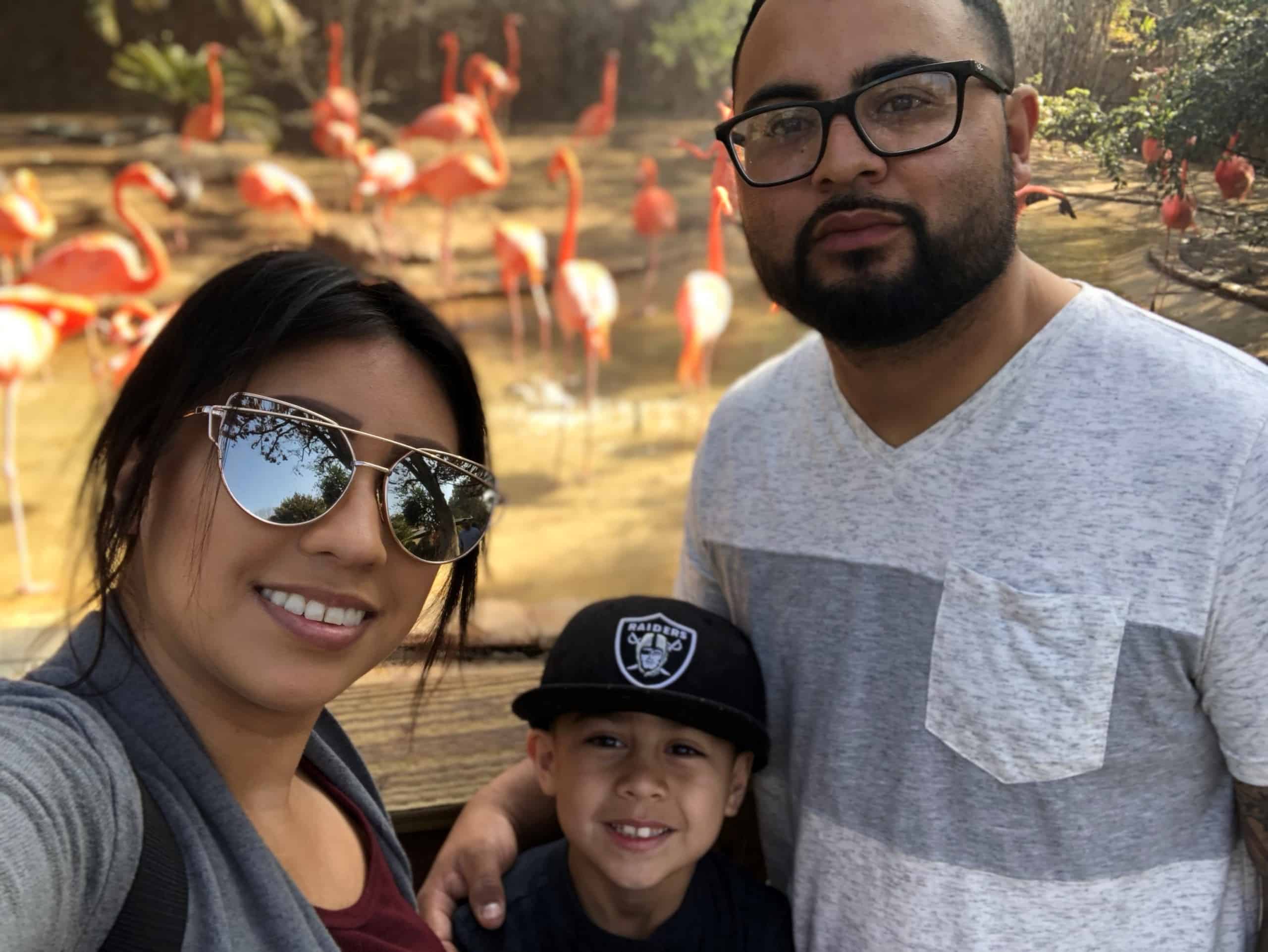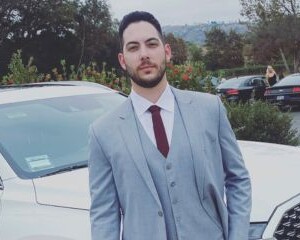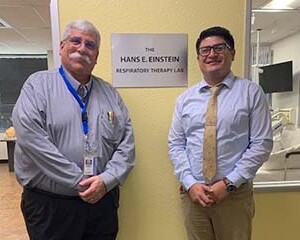New Respiratory Therapist shares experience starting career during COVID
 Toni Abarquez had barely completed orientation for her new Respiratory Therapist position at a small, 54-bed hospital when potential CoVid-19 patients started coming through the Emergency Room doors.
Toni Abarquez had barely completed orientation for her new Respiratory Therapist position at a small, 54-bed hospital when potential CoVid-19 patients started coming through the Emergency Room doors.
“Our protocol had been to wait for testing results (for the virus), but now if a patient comes in with just one symptom, we will put them in isolation,” says Toni. “We put full PPE (Personal Protective Equipment) on now, too.”
One major factor has made that change necessary. “Prisons have been hit pretty hard with it and we do get the inmates,” she confirms. “The only positive cases we have so far have all been inmates,” though Toni is not allowed to quote any statistics. “That is tightly held information right now.”
With only 6 ICU (Intensive Care Unit) beds available, the hospital has had to create space to treat CoVid positive patients. “We’ve had to convert post-op (post-operation areas) to non-CoVid units and if someone is CoVid negative, they go directly to that department,” says Toni.
The separation is vitally important for the protection of all patients and staff. “Safety protocols are taken seriously, and the hospital has been very good about precautions we take with every room we enter and exit,” says Toni. “There have been no incidents of staff contracting CoVid.
So far, the hospital has not been overwhelmed with CoVid positive patients. They experienced an initial shortage of PPE, but the Federal government came through with N-95 masks and the local Harbor Freight store donated several eye-shields.
The virus took all in its path by surprise. “It’s a new disease,” says Toni, and we’re seeing patients who appear to be doing well, then, in a matter of hours, they’re crashing.” All CoVid patients are closely monitored.
Toni had not expected to enter her new career field just as a pandemic hit her city and much of the rest of the world. She had just completed the Respiratory Therapy program at SJVC’s Bakersfield campus a few months prior. This was her first job as a Registered Respiratory Therapist.
“Honestly, I just suited up and went head-on into this,” says Toni. “It’s a scary situation, but it’s also a learning process. I feel there is no better time to learn than during the Covid experience.”
CoVid-19 is a deadly threat to humanity, but it is also a fascinating study of this virus’s dynamic. “It is interesting to see, and as a new (Respiratory Therapy) graduate, it’s shocking,” she continues.
The downward spiral can be swift. “We can look at a monitor and see numbers that show a healthy person is in the hospital,” says Toni. “But then we see their blood gasses and realize how much this person is suffering…and they don’t even know it.”
This false calm does not last. “A lot of them tell me they feel fine and by the next day, or even the next shift, they can’t get a good breath,” says Toni. This has been true of several prison inmates.
“At the prison they test positive, so they come to us even though they don’t have the physical symptoms. There are some who are in distress, but others who say they feel perfectly fine – though their blood gasses show different.”
The hospital has only 8-9 ventilators, but some have the capacity to treat more than one patient. “If things at our hospital escalate quickly, we have a lot in place to stay on top of things,” says Toni. “It’s manageable for us right now. Nobody is working double shifts. A lot of people have taken overtime hours, but not because we don’t have enough staff.”
“As Respiratory Therapists we assist the doctor with intubation and connecting the patient to a ventilator,” says Toni. “We put them on an order setting and monitor the patient throughout our shift, every 2-hours at a minimum. The patient on the vent is fully sedated; it paralyzes them to give their bodies time to heal.”
Toni’s primary focus is the welfare of her patients. “The best part is seeing some patients doing better and who do recover. In our small facility we have maybe 7 or 8 patients each, so a better chance to connect.”
It is both professional and personal to Toni. “Most patients are unconscious, but I still talk to them as if they aren’t. There’s no evidence to prove if they can or cannot hear you. ‘Hang in there’, I tell them. You have to stay positive.”
Toni wants to do everything in her power and training to help her patients. “The hardest part is not being able to help them from that very moment they walk in. It’s a process. As a human being you hope they don’t have to suffer, so you want to make it better as fast as you can.” And, she is confident she can help.
So long as patients are stable and have a good prognosis for recovery, the medical team will do all they can to expedite their return to good health. But should the patient’s condition worsen, immediate steps are taken to get them to more advance care.
“We’ve had no deaths at our facility,” says Toni. “If someone needs more critical care, we ship them out to a larger hospital about an hour away.” There, patients might receive a more assertive level of treatment.
With the weight of the CoVid pandemic landing squarely on Toni’s chosen area of the medical expertise, she leans into everything this rare experience brings. She feels her Respiratory Therapy program primed her for this moment.
“I enjoyed my time at SJVC and feel they prepared me for my career,” says Toni. “We were a class of fourteen with different personalities, and still required to work as a team and help each other out. In the working world we have to work with CNAs (Certified Nursing Assistants), doctors and others, and I feel that helped me prepare for that.”
She found help at-hand when she needed it most. “It was a very stressful program and if we lost confidence, we had support from faculty. I had an instructor, Mr. Romero, who was there for us. He would remind us why we started this program. An hour before class started, he was always there. I think that helped me pass my exam to get my license.”
Toni has locked in some important career and life lessons. “I’m confident in my work, but I also know that there are other people a lot more experienced than I am. Every patient is different, every situation is different. So, if somebody wants to give me some advice, I’m definitely going to take it.”
A career as a Respiratory Therapist is not for everybody. It can be an intense environment where life-and-death decisions are often made in seconds.
“I would definitely encourage it, if you have the passion,” she says to all who might consider this medical career choice. “We are definitely the go-to if someone is crashing.”
Toni is one of those who has chosen to stand in the middle of a storm. For her, the weather is fine.
You might also like
More stories about
Request Information
All fields using an asterik (*) are required.


